The Saturday Read: Lethal illusion
Inside: Qatar, by-elections, Fox, Al-Ahli, le Carré, Coetzee, Calvino, and a picture.
Good morning, and welcome to the Saturday Read, the New Statesman’s weekly guide to the best writing on ideas, politics, books and culture. This is Harry, along with Will and Pippa. We have a lot here for you in today’s email, so let’s get straight to it.
If this email cuts off before you reach Will’s sign-off, you can click through to read it in full. If these pieces intrigue, perhaps you’d like to try a trial subscription to the NS. Read three free articles after registering on our site. A digital subscription is only 95p a week. And if you already subscribe to the NS, thank you for being a reader of ours.
1—“All that has, of course, been shown to be a lethal illusion.”
In the wake of Hamas’s attack on Israel two weeks ago, you could watch a video of the group’s leader celebrating the footage in the comfort of his office. You may, like me, have found yourself asking where on Earth he was. The answer is Qatar. How does a tiny Arab state, which just hosted the World Cup, get away with harbouring Hamas? John Jenkins, the former British ambassador to Syria, Iraq, Libya and Saudi Arabia, offers answers. HL
Doha serves as one of two main external bases for Hamas (the other is in Turkey). The Israeli government has helped too. Over the past five years it has allowed Qatar to fund Hamas’s oppressive and often brutal rule in Gaza through transfers of cash – around $30m a month – and fuel. Israel has done so principally to avoid taking responsibility for the welfare of people living there, but also in the hope that by sustaining Hamas in Gaza it would widen the split between Gaza and the West Bank, undermine the Palestinian Authority (PA) and make the prospect of a unified Palestinian position impossible.
2—“These are mid-1990s Blair-sized victories.”
Two more by-election wins: Labour is ascendant. It is winning in areas that appeared to be new Tory strongholds a few short years ago (writes David Gauke). Westminster is underpricing a complete Tory wipeout, thinks Lewis Goodall. These pieces, reporting from each seat, captured the mood on the ground. And Andrew Marr has reacted to the results for us here, reflecting on them and the controversy around Keir Starmer’s blank-cheque support for Israel this week. HL
The Tories are not facing a traditionally flaky and disputatious Labour opposition as they might wish, but a disciplined and ruthless electoral machine led by a disciplined and ruthless man.
Team Starmer isn’t naive. The leadership is being advised by, among others, Jonathan Powell, Blair’s former chief of staff and an expert in conflict resolution, and by a clutch of highly experienced former diplomats. But its relative inexperience in foreign affairs, in which every syllable counts, is already showing. One day, this may come to be even more important than the views of the voters of Tamworth and Mid Bedfordshire.
Sign up to our weekday political newsletter here:
3—“Fox News is Rupert Murdoch’s very own Dorian Gray portrait.”
Tina Brown, the editor who built Vanity Fair and then ran the New Yorker, writes for the NS on Michael Wolff’s new Rupert Murdoch book. This one – a follow-up to Wolff’s “epic flop” of a biography in 2008 – is on Fox News. Brown finds Wolff’s Murdoch-as-King-Lear thesis laboured. She thinks Wolff has also been excessively spun by his sources (namely Murdoch’s estranged son, James). But the story of Fox is the story of our time. The question is: did Murdoch mean to create it? HL
Women always get the worst of it in Wolff’s narratives. In this one he describes how “in the variegated ecosystem of Fox misogyny”, the network host Laura Ingraham is a ratings-challenged “drunk”; the Fox News presenter turned Trump surrogate Kimberly Guilfoyle sinks into a private plane seat, he alleges, wearing no underwear; the publicist Irena Briganti, whose role is to dribble dirt about Fox traitors to a receptive liberal media, is known, says Wolff, as the “fat beast”. (Full disclosure: Wolff once wrote a “downfall” piece about me looking like a “bag lady” in 2001, based on an encounter at the Carlyle Hotel in New York City that didn’t happen. I retaliated with a squib in “Talk” magazine that commented on Wolff’s “baleful masturbatory glare”. Don’t let anyone tell you that the Manhattan publishing world was not once a fun place to work.)
4—“The presumed facts soon began to unravel.”
How did Joe Biden’s Middle East tour collapse on an apparent falsehood this week? I took a look at the media’s mishandling of the Al-Ahli Hospital blast. The BBC and New York Times both rushed to report the explosion, parroting Hamas’s claim that it was an Israeli air strike before investigating it.
Mishal Husain later defended the BBC’s reporting on the Today programme by saying that the BBC were simply broadcasting competing claims. But that’s not the job, as Robin Day pointed out 30 years ago. It is not enough to say, “This man says this, this man says that. You have to say, ‘But what is the truth of this matter?’” HL
By 7.17pm, Jeremy Corbyn had tweeted his condemnation at the “unspeakable horror” inflicted on Gaza by Israel (to ten million views). The Archbishop of Canterbury, Justin Welby, also tweeted (“appalling and devastating”), as did Anas Sarwar, Labour leader in Scotland (“There is no justification for this brutality. It must be condemned.”) They all treated the news as fact.
5—“‘What a good time they must have had, all those women.”
Three years after the death of John le Carré, Adam Sisman has written an addendum to his 2015 biography of the author, featuring all he was not allowed to tell while his subject was alive – and there’s a lot of womanising. The duplicity that defined his spy novels also played a role in his life-long pursuit of pleasure, writes John Banville. PB
Although Sisman’s book is horribly fascinating, at times the reader will look up from the pages haggard-eyed after being splashed in the face with yet another revelation of yet another of David’s serial infidelities. But to be fair to the man’s memory, it should be said that he was no beady-eyed roué preying on the weak and the lonely. His lovers were in the main strong, independent women who knew more or less what they were letting themselves in for when they let him into their beds. He conducted each affair, at least at the outset, in what seems to have been a romantic rapture. There were lavish endearments, expensive gifts, stays at fancy foreign hotels, repeated promises to leave his wife, and sex, sex, sex.
Tackling the digital divide through partnership – with Virgin Media O2 Business
In a special podcast, experts delve into the urgent need to combat digital exclusion. Learn how collaborations between telecoms providers, local government, and non-profits can bring connectivity and digital skills to underserved communities. From tech donation programs to skills workshops, these initiatives not only enhance digital literacy but also contribute to vital environmental and social goals.
Don’t miss this insightful discussion on the transformative impact of closing the digital divide.
6—“His best work has been frighteningly bleak.”
Ann Manov reviews The Pole, a “stiflingly civilised” novella by JM Coetzee, a writer who is usually a little more barbaric than he is in this late work. WL
“The Pole” is in some respects a strangely sterile story: it nominally takes place in Spain in 2015, but it’s a firmly global one. There is little physical description, little of the immediate sensation of life. Beatriz is not a woman of passions, at least not ones she gives in to, and she holds the Pole at such a distance that at times he seems almost non-existent. But for this reason, Beatriz’s disgust at his age and his violent and staunchly sexual desire for her are all the more shocking in their frankness. This is a book about deep themes – death, decay, despair, all three combined in an elderly character with a striking resemblance to his creator – and one that offers little consolation.
7—“Calvino believed that literature has a grand purpose.”
Jeanette Winterson considers Italo Calvino’s Invisible Cities. His first novel, The Path to the Nest of Spiders, a coming-of-age tale about a teenage soldier, set him up as a commentator on the conflicted world order – but that was not the writer he wanted to be. Instead, he turned to fable. Twenty years later, “Calvino had honed his method so completely that this little book called Invisible Cities burst out of all confines”. PB
Like Calvino, I did very well with my first novel, “Oranges”, and more of the same was expected. I felt alone and confused, but as a writer, your best friends are often dead, so I went back to Calvino’s writings to learn more, to take heart, and to write “The Passion” (1987). Calvino died in 1985, the year “Oranges” was published. I know that without him as a talkative and wise mentor, I would have struggled to understand my early path.
8—“People have had a lot to say this past week, or they have had nothing to say at all.”
Judaism in Britain is a mirror. It reflects gratitude, humour and, during times like this, anxiety. I’m glad Tanya Gold wrote this column. WL
It is an odd state, being a British Jew: within and without, near and afar. We tend to mirror British society back at it: this is our gratitude, our anxiety and, sometimes, our jest. The most famous compendium of British buildings – a series dedicated to codifying the material shape of Britain – was written by the German-Jewish refugee Nikolaus Pevsner. Our most famous synagogue, Bevis Marks in the City of London, looks like a church. How I love you, it says, but I am not you.
9—“Non-Americans reading this will likely be surprised that a store called Drug & Gun exists. Too on the nose, surely?”
Our columnist Kara Kennedy spent much of the summer driving around America. It was a crash course in Americana, the great symbol of which Kara decided is the drive-thru. WL
To find the best drive-thrus in America and the best of everything else, you’ll need to head to Louisiana. Most people I’ve asked about their favourite drive-thrus told me that it’s got to be Louisiana's daiquiri drive-thrus. Invented in the early 1980s, before there were any state laws prohibiting drinking and driving, Louisianans would have about two years to enjoy them guilt free before the state outlawed open containers in cars. In retaliation, the stores introduced daiquiri drive-thru closed containers – the same cup but sealed with a piece of tape securing the lid to the cup and covering the straw hole. This loophole endures. It’s held up for 40 years, beating multiple court challenges.
10— “By the armistice he had seen enough of battle to have become radicalised.”
The German painter Max Pechstein, a veteran of two world wars, was imprisoned by the Japanese in 1914 and by the Russians in 1945. He was lucky, writes Michael Prodger, to avoid a similar fate under Hitler, who singled him out for his 1937 Entartete Kunst exhibition as an example of what art should not be. Michael considers his paint, politics, and a key work made in what is now Lithuania. PB
From 1906 until 1933 Pechstein was a key figure in the development of German expressionism, a distinctive form of modernism that used bright colours and vigorous brushstrokes to emotional effect, taking the chromatic techniques of French post-impressionism and fauvism and giving them a Teutonic twist. He was active, too, in art-world politics, which, in the febrile post-First World War years, were closely entwined with changes in wider German society.
Will’s Best of the Rest
Bloomberg: Biden visit fails to calm Middle East. Harsh on Joe. He didn’t fall over once.
WaPo: Democrats’ unity starts cracking on Israel-Gaza conflict.
Foreign Affairs: The high costs of crushing Hamas.
Noema: After the human. It’s the cockroaches’ planet now, you’re just living in it.
Helen Lewis: Guess who passed the Hamas test? Whole swathes of the British left?
Taffy Brodesser-Akner: A sort of Taylor Swift profile.
David Roth: Twilight heroes of capitalism.
Heidi Blake: The great carbon offset scam.
Cher: Why am I still here?
Max Weber on journalists. All of this is still true.
Matt Goodwin’s dinner plans. Won’t somebody please buy this man a plate of pasta?
Elsewhere on the NS
It’s amazing that Finn McRedmond needs to point this out, but here we are: Northern Ireland is nothing like the Gaza Strip.
How did 7 October happen? Lawrence Freedman explains.
Sophie McBain has written on Caroline Ellison, the woman at the heart of the Sam Bankman-Fried trial. She has also reviewed David Brooks’s latest book. Her verdict? To borrow a quote: “Incomprehensible, and unpersuasive.”
David Broder reacts to Donald Tusk’s surprise victory in Poland’s parliamentary elections last Sunday: the right-wing government’s defeat owed less to disillusionment among its own base than to soaring opposition turnout.
Pippa Bailey spoke to the theoretical physicist Carlo Rovelli about his radical youth, LSD, and one of the universe’s greatest mysteries: what’s at the bottom of a black hole?
“War breaks out in the Middle East, and Europeans are at each other’s throats over a choice of words.” This is a useful Wolfgang Münchau guide to why the EU has so little clout in Middle Eastern politics.
Alona Ferber has interviewed Kenneth Roth, the former head of Human Rights Watch, who warns against describing the current conflict in Gaza as genocidal: “I tend to be pretty conservative in making genocide accusations. Some people feel like it’s not really serious unless you call it genocide and I think that’s a mistake.”
Why do we go to war? Elliot Ackerman knows.
John Gray and Mick Herron, the bestselling author of the Slough House series, discuss dark humour and the allure of the Cold War.
Don’t miss Thomas Nagel on Daniel Dennett: our weekend essay.
Finally, a TV show that doesn’t focus on a dead body: Rachel Cooke reviews the Martin Freeman family drama Breeders.
What we’re reading: The Vanity Fair Diaries (2017)
“Here time is to be spent, like money; time is to be killed, time is to be forgotten… We give intellectuals movie star treatment and movie stars an intellectual sheen… Though he actually has very refined sensibilities himself, he bristles if he thinks you are appealing to them… Individually I like them all. Together they are a lethal band… Brodkey is so full of shit, but the question is, why?”
Like Anna, I love a diary. (None more than Harold Nicolson’s during the 10-year long parliament of 1935-45.) Brown’s account of her reign atop Vanity Fair in the 1980s, which she took over aged 30, will keep you up at night and have you underlining something on every other page – or they will if you are anything like me this week. HL
And with that…
I no longer own a television. I do not watch comedy on YouTube. I cannot remember the last time I could be bothered to pick up PG Wodehouse. The question surfaces: what do you do for a laugh then, son? Well, I go to public debates, like the one held last Tuesday at Conway Hall, next to Holborn station, 30 seconds from one of London’s worst pubs.
The comedians on display that night were David Aaronovitch and Matt Goodwin. Both men are funny for different reasons. In the Noughties, Aaronovitch used his columns to cheerlead for Britain’s interventions in Iraq and Afghanistan. These were deadly errors. A more self-aware person might have banished themselves to the Outer Hebrides thereafter: grown a beard, prayed for forgiveness. Goodwin has never done anything quite as bad as that. He is very much the “debate-me” man of British public life. He says he’s a political scientist, but he just seems to tweet about how much he dislikes the country he lives in, and what it has become. The pair share a mutual loathing. They are both in earnest, and therefore ridiculous.
The question up for debate: “Is Britain run by a new out-of-touch elite?” The audience was composed of members of that new elite who turned up to deny their own existence. Aaronovitch was there to wind up Goodwin, and Goodwin was there to try and persuade people that, after 13 years of Conservative government, Britain was still run by New Labour. There was much heckling, though sadly no objects (knickers, etc) were thrown at the stage.
Was this a debate? The word presupposes we can change, that we are persuadable. There was little evidence of that on Tuesday night. Goodwin and Aaronovitch could be stuck together on a Pacific atoll for 20 years – the only thing that would happen is one would murder the other. I don’t think people are permeable to new ideas and new points of view anymore. Maybe they were once. But the “debate” as a form appears charmingly, gigglingly archaic, like Gilbert and Sullivan at the ENO. This House believes that people pick a side, stick with it, and refuse any evidence or argument that contradicts their worldview. And no, I don’t want to debate that with you.
Thank you for reading. Don’t miss out – subscribe to the New Statesman and stay up to date with everything you need: from news and analysis to comment and criticism.
Whether you’re looking for a sharp blog or a finely written feature, the New Statesman has you covered. Have a good week, and catch you next Saturday.
Thanks to Barney Horner.


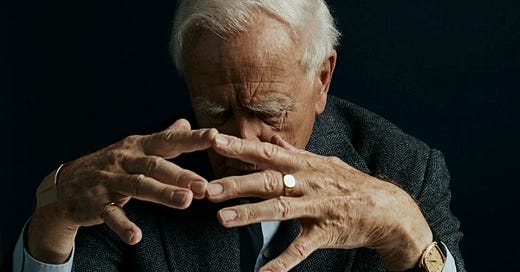








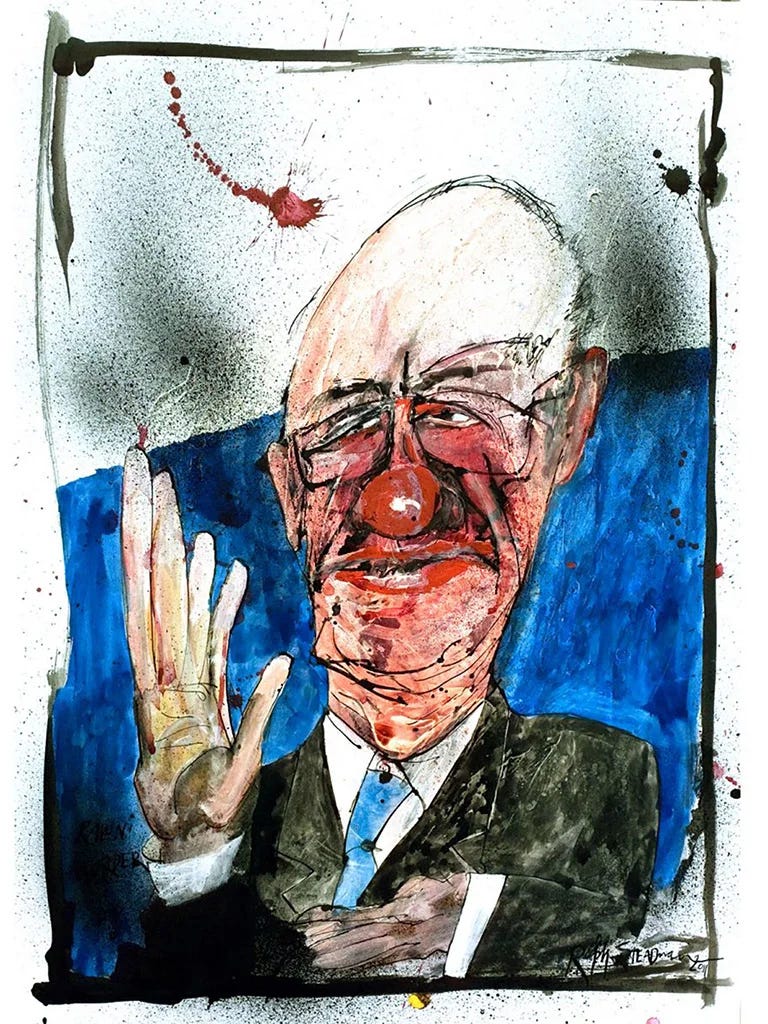



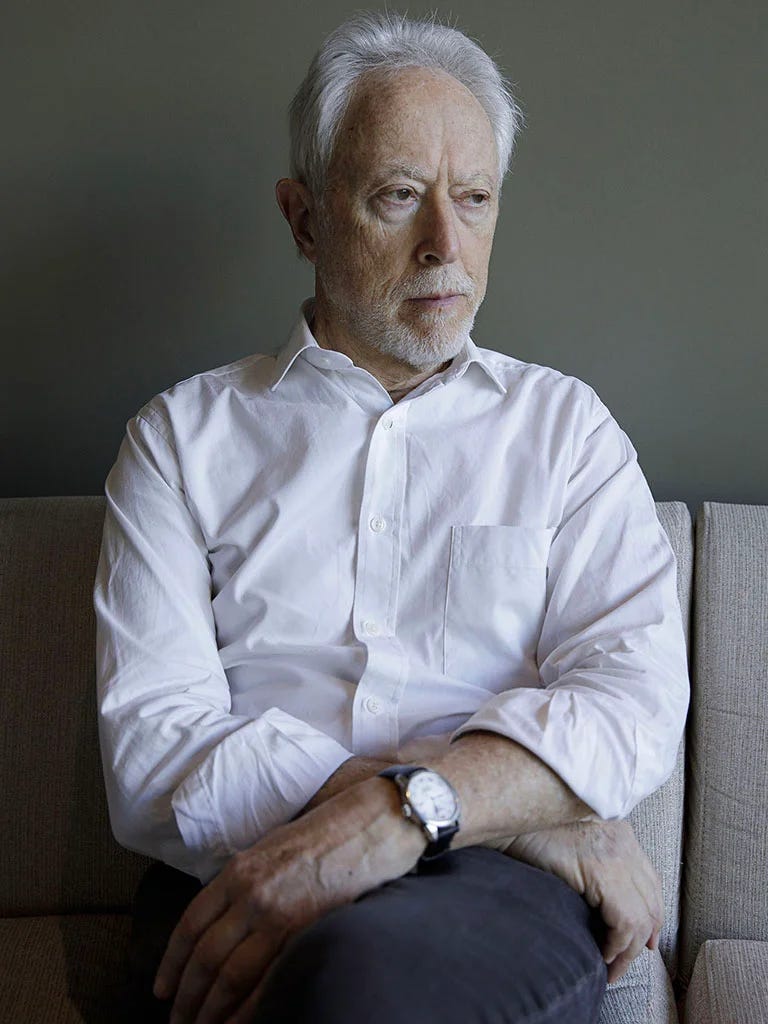
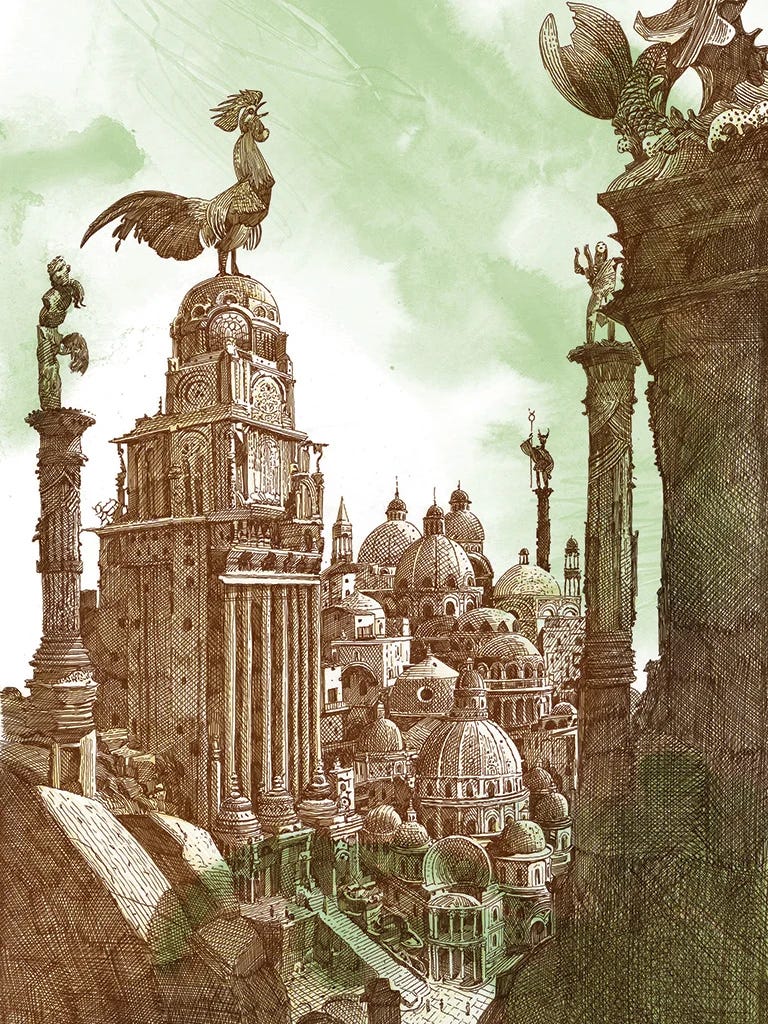

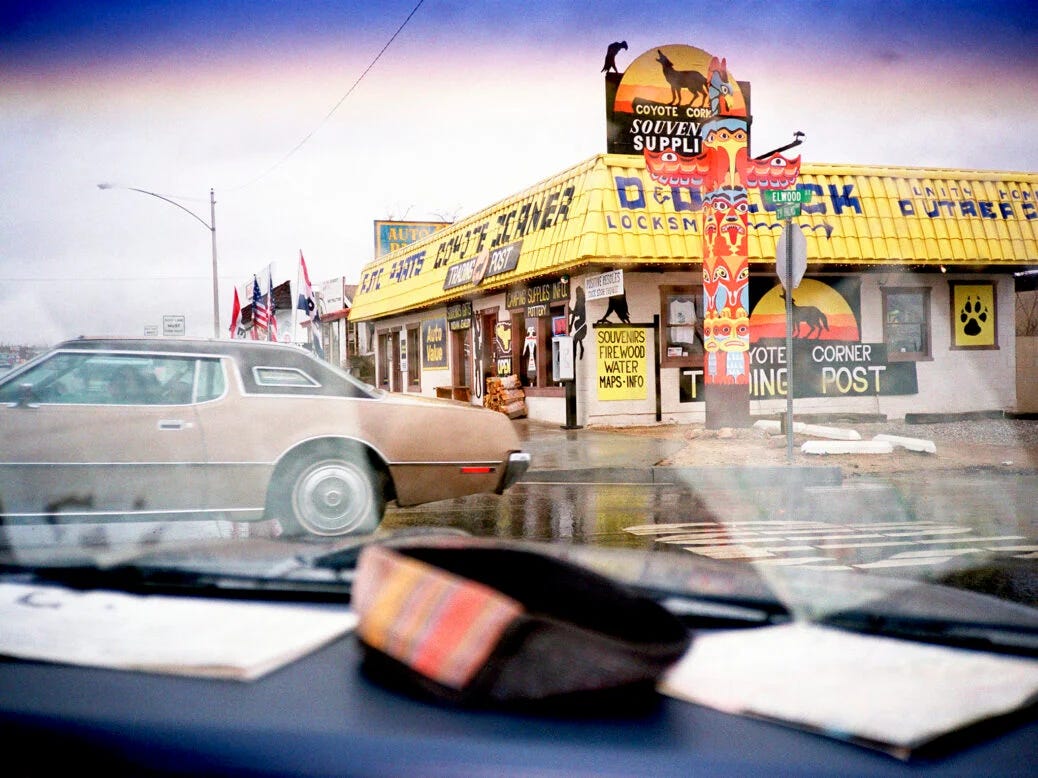

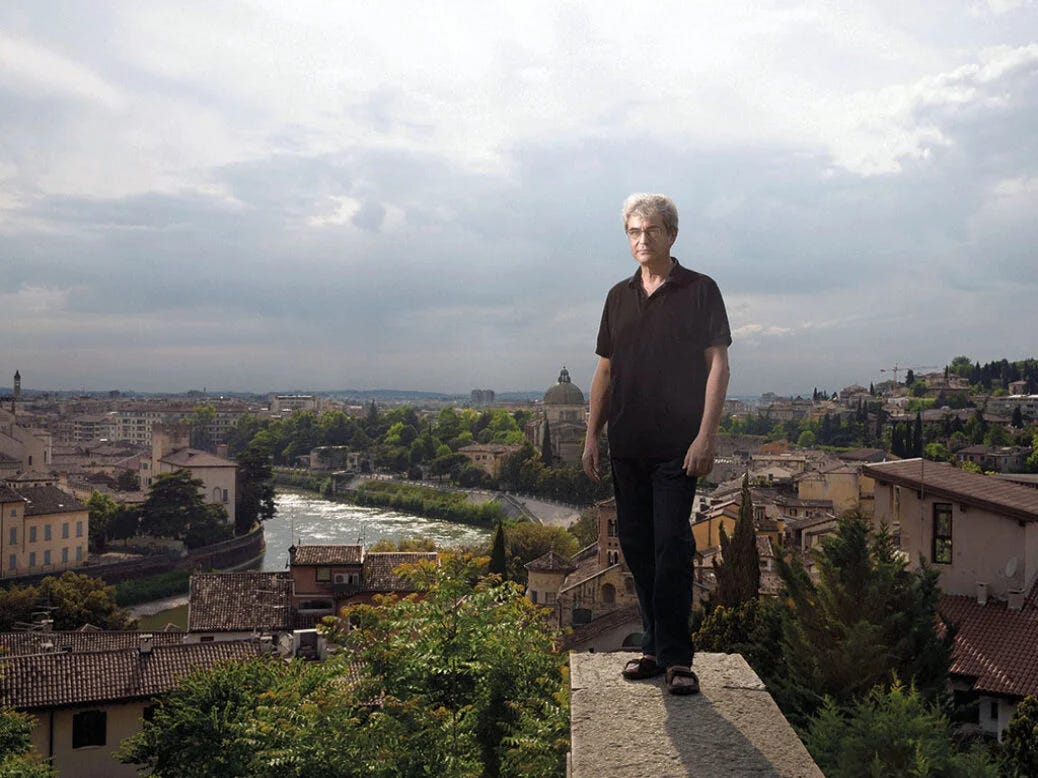
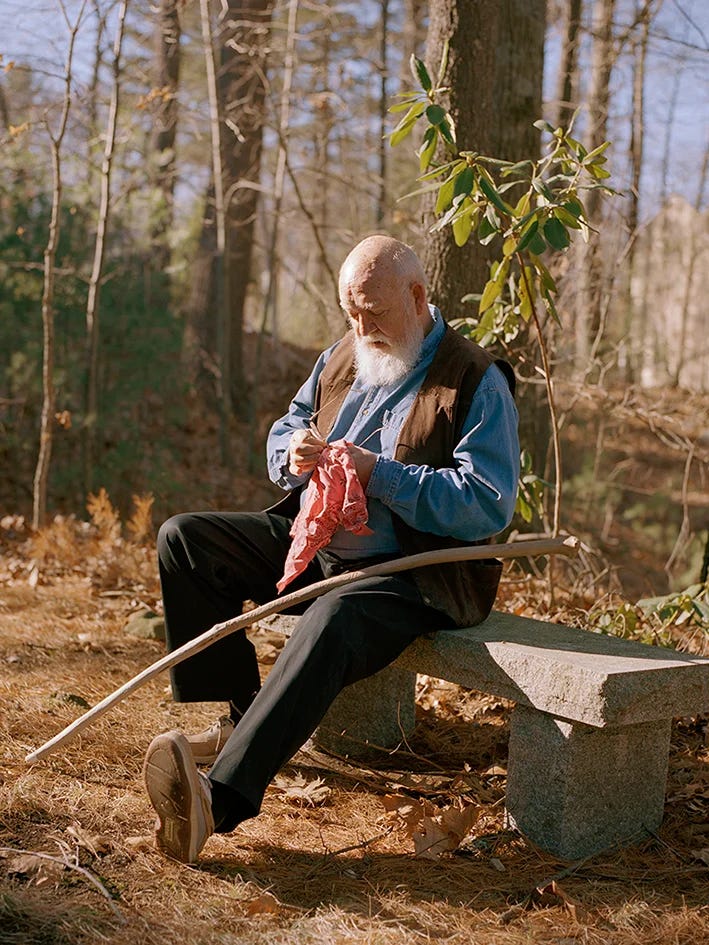



Will
I could not agree more with you. I have found that people commit emotionally to a series of stances some of often contradict each other and once thus committed no facts or arguments , no matter how compelling will shift their views. I will personally admit to being one of these persons while watching my local football team where the opposition team use all sorts of underhand methods to stop the Jags from scoring. However once the match is over I can take a more reasonable view and see that my team employ similar tactics.
I find that many take personal offence at having their views challenged.
Perhaps it is my love of a good argument that welcomes someone challenging my views and although I may not admit it at the time my views can be moderated by a sufficiently good set of facts or argument except when it comes to referees.
"Mishal Husain later defended the BBC’s reporting on the Today programme by saying that the BBC were simply broadcasting competing claims. But that’s not the job, as Robin Day pointed out 30 years ago." Well said. Now how many journalists does it take to figure out that Hammas might be lying about an attack on a hospital?